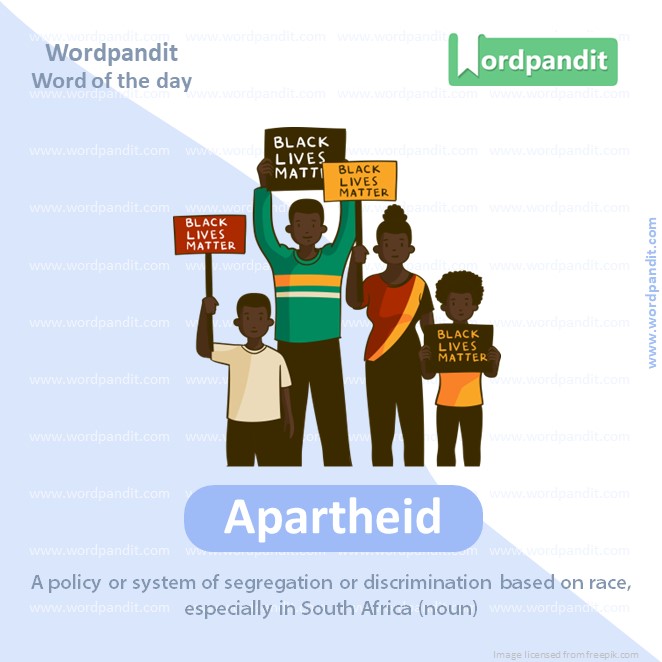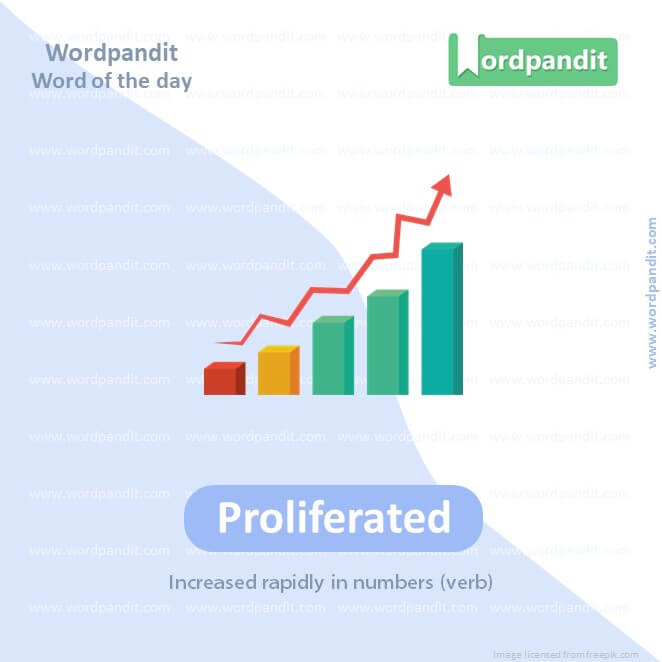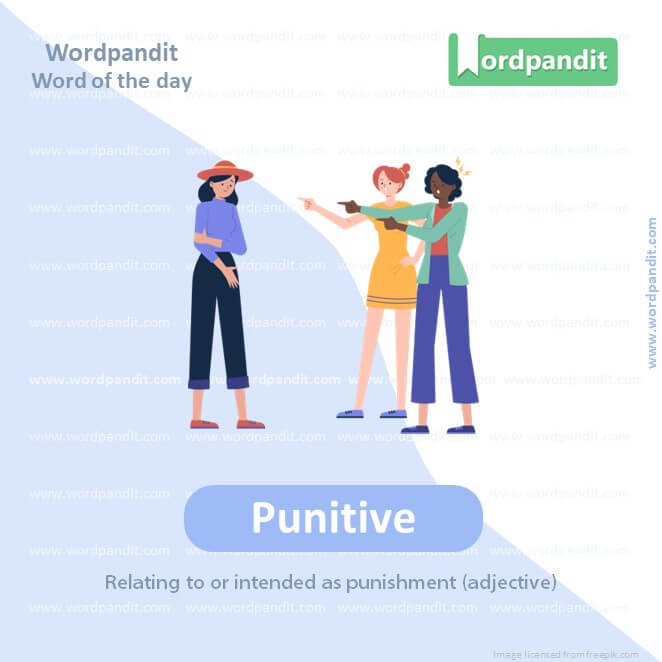Daily Vocabulary Words: List of Daily Used Words
Hi there. Welcome to this special section @ Wordpandit.
Our endeavour here is straightforward: highlighting important daily vocabulary words, you would encounter in The Hindu. This is your repository of commonly used words; essentially, we are posting a list of daily used words. Hence, this has significant practical application as it teaches you words that are commonly used in a leading publication such as The Hindu.
Visit the website daily to learn words from The Hindu.

WORD-1: Apartheid
CONTEXT: During the anti-apartheid protests calling for divestment at campuses in the late-1980s — when we ourselves were students — university administrators were embarrassed about aligning with the White apartheid state of South Africa.
SOURCE: The Hindu
EXPLANATORY PARAGRAPH: Imagine a school where some kids are treated better than others just because of the color of their skin. That’s like “apartheid,” which means keeping people apart and treating them unfairly based on their race.
MEANING: A policy or system of segregation or discrimination based on race,
especially in South Africa (noun).
PRONUNCIATION: uh-PAHRT-hayt / uh-PAHRT-hyt
SYNONYMS: segregation, discrimination, racism, separation, division
USAGE EXAMPLES:
1. Nelson Mandela fought against apartheid in South Africa.
2. Apartheid laws denied basic rights to millions of people.
3. The government worked to abolish apartheid and promote equality.
4. Apartheid created deep divisions and suffering in the country.
WORD-2: Aligning
CONTEXT: During the anti-apartheid protests calling for divestment at campuses in the late-1980s — when we ourselves were students — university administrators were embarrassed about aligning with the White apartheid state of South Africa.
SOURCE: The Hindu
EXPLANATORY PARAGRAPH: If you make sure all your crayons are neatly in a row, you’re “aligning” them. It means putting things in a straight line or making sure they work well together.
MEANING: Arranging things in a straight line or making them work together smoothly (verb, present participle).
PRONUNCIATION: uh-LYN-ing
SYNONYMS: arranging, ordering, adjusting, coordinating, organizing
USAGE EXAMPLES:
1. The students were aligning their desks before the class started.
2. The company is aligning its goals with customer needs.
3. She was aligning the picture frames on the wall.
4. Aligning their schedules was crucial for planning the project.
WORD-3: Abolitionist
CONTEXT: The call for “cops off campus” can be explained by the abolitionist critiques of the police as a racist institution amplified in the wake of the George Floyd protests of 2020.
SOURCE: The Hindu
EXPLANATORY PARAGRAPH: If someone works really hard to stop something unfair, like slavery, they’re an “abolitionist.” It’s a person who fights to end something wrong.
MEANING: A person who works to end a system or practice, especially slavery (noun).
PRONUNCIATION: ab-uh-LISH-uh-nist
SYNONYMS: reformer, campaigner, activist, advocate, opponent
USAGE EXAMPLES:
1. Harriet Tubman was a famous abolitionist who helped slaves escape.
2. The abolitionist movement played a key role in ending slavery.
3. Many abolitionists spoke out against the cruelty of slavery.
4. Frederick Douglass was a powerful abolitionist orator and writer.
WORD-4: Plagued
CONTEXT: Along with the fact that this generation in universities today were mobilised into activism against the gun violence that has plagued them in schools since childhood. Finally, the call for the protection of pro-Palestine speech and activism is a reflection of the history of university administrators’ complicity in the “Palestine exception” to academic freedom made especially evident since October 2023.
SOURCE: The Hindu
EXPLANATORY PARAGRAPH: Imagine having a swarm of mosquitoes that keep biting you all day. You feel “plagued,” which means being bothered by something that doesn’t stop.
MEANING: Caused continual trouble or suffering (verb, past tense).
PRONUNCIATION: playgd
SYNONYMS: troubled, afflicted, tormented, harassed, bothered
USAGE EXAMPLES:
1. The village was plagued by a lack of clean water.
2. The team’s performance was plagued by injuries throughout the season.
3. He was plagued by worries about his upcoming exams.
4. The city has been plagued with traffic problems for years.
WORD-5: Waged
CONTEXT: From the university investments to the war that is being waged on the other side of the globe.
SOURCE: The Hindu
EXPLANATORY PARAGRAPH: Imagine someone fighting really hard to win a game. They’re “waging” a battle to win. It means starting and continuing something, like a fight or campaign.
MEANING: Started and carried on, especially a conflict or campaign (verb, past tense).
PRONUNCIATION: wayjd
SYNONYMS: conducted, engaged, fought, pursued, initiated
USAGE EXAMPLES:
1. The soldiers waged a fierce battle against the enemy.
2. Activists waged a campaign to raise awareness about climate change.
3. They waged war against poverty in their community.
4. The union waged a strike to demand better wages and benefits.

WORD-6: Proliferated
CONTEXT: As the war escalated, student protests proliferated, and university surveillance and crackdown of protests became ever more punitive.
SOURCE: The Hindu
EXPLANATORY PARAGRAPH: Imagine blowing bubbles and seeing lots of them fill the air. The bubbles “proliferated,” which means they multiplied quickly and in large numbers.
MEANING: Increased rapidly in numbers (verb).
PRONUNCIATION: pro-LIF-er-ay-tid
SYNONYMS: multiplied, spread, expanded, escalated, grew
USAGE EXAMPLES:
1. Smartphones have proliferated in the past decade.
2. The invasive plant species proliferated quickly in the wetlands.
3. Fast-food restaurants have proliferated across the country.
4. Rumors about the celebrity’s new relationship proliferated online.

WORD-7: Punitive
CONTEXT: As the war escalated, student protests proliferated, and university surveillance and crackdown of protests became ever more punitive.
SOURCE: The Hindu
EXPLANATORY PARAGRAPH: If you break a rule and have to do extra chores as punishment, those chores are “punitive.” It means intended to punish someone.
MEANING: Relating to or intended as punishment (adjective).
PRONUNCIATION: PYOO-nuh-tiv
SYNONYMS: disciplinary, penalizing, corrective, retaliatory, vindictive
USAGE EXAMPLES:
1. The teacher gave the students punitive assignments for misbehaving.
2. The government imposed punitive taxes on luxury goods.
3. The company introduced punitive measures against rule-breaking employees.
4. They took punitive actions to prevent further violations.

WORD-8: Encampments
CONTEXT: Even as the repression intensified, these de-occupation encampments spread to campuses across the country.
SOURCE: The Hindu
EXPLANATORY PARAGRAPH: Imagine a big group of tents set up for people to live in during a camping trip. Those are “encampments,” which are places where groups of people set up temporary homes.
MEANING: Temporary places where people live, especially in tents or shelters (noun, plural).
PRONUNCIATION: en-KAMP-ments
SYNONYMS: camps, settlements, bases, outposts, shelters
USAGE EXAMPLES:
1. The military set up encampments near the border.
2. Homeless encampments can be seen in various parts of the city.
3. The gold miners built encampments as they searched for treasure.
4. Aid workers provided supplies to the refugees living in encampments.
WORD-9: Conjuncture
CONTEXT: These protests can be situated in the specifics of the current historical conjuncture, but the use of the term “de-occupy” also speaks to a larger analysis of the university’s role in colonial, imperial and corporate extractivism.
SOURCE: The Hindu
EXPLANATORY PARAGRAPH: Imagine two things coming together at the same time, like when a holiday and your birthday happen on the same day. That’s “conjuncture,” which means a combination of events or conditions.
MEANING: A combination of events or conditions that happen together (noun).
PRONUNCIATION: kun-JUNK-chur
SYNONYMS: combination, coincidence, convergence, juncture, union
USAGE EXAMPLES:
1. The conjuncture of political changes led to a new government.
2. The company’s success was due to a conjuncture of favorable conditions.
3. A conjuncture of rising costs and low sales caused the business to fail.
4. The conjuncture of new technology and innovative ideas led to rapid growth.

WORD-10: Extractivism
CONTEXT: These protests can be situated in the specifics of the current historical conjuncture, but the use of the term “de-occupy” also speaks to a larger analysis of the university’s role in colonial, imperial and corporate extractivism.
SOURCE: The Hindu
EXPLANATORY PARAGRAPH: Imagine digging up lots of minerals and cutting down many trees to sell for money. That’s “extractivism,” which is when natural resources are taken from the Earth on a large scale.
MEANING: The process of extracting natural resources from the Earth to sell on the world market.
PRONUNCIATION: ek-STRAK-tiv-izm
SYNONYMS: resource extraction, mining, exploitation
USAGE EXAMPLES:
1. Extractivism has led to deforestation and pollution in many regions.
2. The indigenous communities oppose extractivism on their land.
3. Critics argue that extractivism harms biodiversity and disrupts ecosystems.
4. The government is reconsidering its policies on extractivism to promote sustainability.
Vocabulary Daily Use
In the fascinating world of language learning, we often concentrate on taking giant leaps, but the real magic lies in the small steps of ‘vocabulary daily use’. These frequently used words and phrases form the backbone of practical communication and understanding. Therefore, mastering ‘vocabulary daily use’ is a crucial element in achieving language fluency.
To effectively learn ‘vocabulary daily use’, one needs to venture beyond the traditional textbook resources. The real essence of these words unveils itself in everyday exposure and interactions. Engaging with a variety of material like novels, magazines, newspapers, podcasts, films and digital content deepens the understanding of ‘vocabulary daily use’. Immersion in these contexts yield natural, everyday language that bridges the gap between the classroom and the real world.
The journey of mastering ‘vocabulary daily use’ necessitates the integration of innovative memory techniques. Flashcards and the Leitner System aid in embedding these words into your long-term memory by promoting active recall. Additionally, the use of mnemonic devices, which allow you to associate ‘vocabulary daily use’ with personal and familiar narratives, can enhance your ability to remember and recall these words.
Moreover, it’s important to remember that ‘vocabulary daily use’ isn’t just about comprehension- it’s about practice and active usage. Incorporate these words in your day-to-day communication and social interactions. This not only solidifies your understanding but also accelerates learning and internalization of ‘vocabulary daily use’.
In a nutshell, mastering ‘vocabulary daily use’ is a continual process that demands exposure, creative learning strategies and assertive practice. The commingling of these tactics brews the perfect formula that allows learners to seamlessly integrate ‘vocabulary daily use’ into their linguistic repertoire. And with that, they can navigate the nuances of language with confidence and ease.











